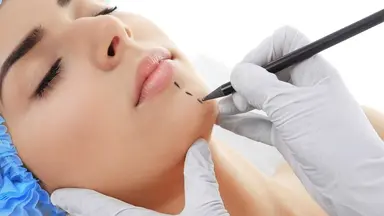Contents
Autism treatment in Georgia brings together stem cell therapy, regenerative medicine, behavioral therapy, and neurological rehabilitation in a medical-tourism format designed for international families. Clinics in Tbilisi use standardized screening tools, structured short-stay programs, and objective progress tracking to deliver measurable improvements within compressed treatment windows.
Georgia’s affordable healthcare structure increases access to stem cell therapy, ABA therapy, HBOT, speech therapy, and sensory integration work. Families receive transparent pricing and attentive care from multilingual medical teams. A-Medical manages medical records, clinic selection, accommodation, transportation, and translation, ensuring a smooth and informed journey for parents seeking effective care abroad.
What Is Autism?
Autism is a neurodevelopmental condition involving communication differences, social-interaction challenges, and repetitive behavioral patterns. Related attributes include sensory sensitivities, delayed language milestones, and variable cognitive abilities. Diagnosis relies on tools such as ADOS-2, ADI-R, and DSM-5 criteria supported by neurological evaluation.
Autism Spectrum Disorder presents through unique behavioral markers such as limited eye contact, delayed expressive language, sensory avoidance, and repetitive movements. Georgian clinics use structured evaluations to map receptive language, cognitive processing, and adaptive skills. These findings create personalized therapy plans that align biological, behavioral, and sensory needs.
Some children show significant sensory modulation difficulties, while others display strong cognitive performance but limited social communication. Georgian specialists analyze patterns through neurological testing and behavioral observation. The structured diagnostic approach forms the foundation for effective treatment design.
Why Choose Georgia for Autism Treatment?
Germany is one of the best countries for autism treatment. Georgia offers advanced autism treatments, experienced clinicians, rapid scheduling, and access to GMP-certified stem cell therapy at competitive prices. Families benefit from English-speaking medical teams, transparent communication, and A-Medical’s fully coordinated medical-tourism framework.
One reason international families choose Georgia is the country’s efficient regulatory environment, which enables clinics to offer regenerative-medicine procedures under controlled laboratory standards. Short waitlists allow families to begin treatment quickly, and the compact size of the city ensures all clinics, hotels, and diagnostic centers are within minutes of one another.
Foreign patients also appreciate the comfort of multilingual support. Clinics frequently employ or collaborate with interpreters who assist during consultations, therapy sessions, and procedure explanations. The combination of low costs, high clinical standards, and smooth logistics positions Georgia as a practical location for autism treatment abroad.
Autism Treatment Options in Georgia
Georgia provides a diverse range of autism treatment options including stem cell therapy, Applied Behavior Analysis (ABA), Hyperbaric Oxygen Therapy (HBOT), speech therapy, occupational therapy, and neurological rehabilitation. Clinics integrate regenerative medicine with behavioral interventions to support communication, sensory processing, and functional development.
Patients typically begin with diagnostic evaluations involving EEG, MRI, developmental assessments, and sensory-profile mapping. These diagnostics help clinicians determine the right balance between biological interventions and behavioral therapies. Programs may include daily ABA sessions, sensory-integration therapy, structured speech training, and neurological monitoring.
International families benefit from the efficiency of short-stay treatment models. Georgian clinics design programs that deliver concentrated therapy blocks, pairing biological treatments, with behavioral work that reinforces learning and communication skills. A-Medical coordinates each component so that families receive a seamless, uninterrupted treatment schedule.
Stem Cell Therapy for Autism in Georgia

Stem cell therapy in Georgia uses mesenchymal stem cells (MSCs) to modulate neuroinflammation, support neuronal repair, and improve communication and sensory tolerance. Clinics administer MSCs intravenously or intrathecally under sterile, laboratory-verified conditions to ensure cellular quality and clinical safety.
The therapy focuses on biological mechanisms relevant to autism, including inflammatory cytokine imbalance, impaired neuronal connectivity, and dysregulated immune response. MSCs secrete neuroprotective factors that may enhance synaptic functioning, promote neural calmness, and increase attention stability. Families often report improvements in eye contact, responsiveness, and adaptive behavior in the months following treatment.
Georgian regenerative-medicine centers follow strict processing standards using GMP laboratories, sterility testing, and microscopic quality control. Patients receive neurological examinations, lab testing, and continuous monitoring throughout the infusion process. A-Medical works closely with each clinic to manage scheduling, interpretation, and patient coordination.
Applied Behavior Analysis (ABA Therapy)
ABA therapy in Georgia is delivered through structured behavior-modification systems that improve communication, learning, and adaptive functioning. Therapists apply reinforcement-based teaching methods designed to strengthen functional behaviors and reduce disruptive or repetitive patterns.
ABA treatment commonly includes Discrete Trial Training, Natural Environment Teaching, and Functional Communication Training. Each child receives individualized programming that targets expressive language, receptive language, turn-taking, task completion, and independence. Georgian ABA specialists often collaborate with parents to reinforce progress at home, enhancing learning consistency.
Some clinics combine ABA sessions with speech therapy, occupational therapy, or sensory-integration work. This multidisciplinary structure ensures that communication challenges, motor skills, and cognitive goals are addressed together. A-Medical helps families choose ABA centers suited to the child’s age, severity level, and developmental priorities.
Hyperbaric Oxygen Therapy (HBOT)
HBOT increases oxygen concentration in the bloodstream by placing the patient inside a pressurized chamber. This higher oxygen availability supports cerebral metabolism and reduces inflammation. HBOT programs in Georgia aim to improve sensory calmness, attention, and cognitive clarity, particularly when paired with stem cell therapy.
Clinics operate medical-grade chambers calibrated to safe therapeutic pressures. Sessions last roughly one hour and promote oxygen diffusion into neurological tissues. Many children display increased receptive language, reduced irritability, and better sensory tolerance after several sessions. HBOT may also enhance the efficiency of other therapies by improving neural readiness.
Georgia’s HBOT centers maintain international safety standards and are accustomed to working with medical-tourism patients. A-Medical aligns HBOT appointments with behavioral-therapy schedules so families can maximize benefits within their limited treatment window.
Autism Treatment Costs in Georgia

Autism treatment in Georgia ranges from 4500–15,000 USD depending on the type of therapy, dosage of mesenchymal stem cells, diagnostic requirements, and the length of the program. Families benefit from transparent pricing, short-stay schedules, and A-Medical’s coordinated treatment planning.
Costs vary based on whether the child receives stem cell therapy, ABA sessions, HBOT, or combined rehabilitation. ABA typically ranges from 25–40 USD per hour, while HBOT costs between 70–120 USD per session. Stem cell therapy programs begin around 3900 USD and include laboratory processing, infusion, and safety monitoring.
Many clinics bundle diagnostics, therapy sessions, and medical supervision into unified treatment packages. These packages often include airport transfers, translation services, and assistance organized by A-Medical, making budgeting predictable for families traveling from abroad.
How Does Stem Cell Therapy for Autism Work in Georgia?
Stem cell therapy for autism works by delivering high-viability MSCs that reduce neuroinflammation, stabilize immune-system activity, and support neuronal repair. Georgian clinics use GMP-grade cell processing, controlled infusion protocols, and neurological monitoring to achieve improvements in communication, sensory regulation, and behavioral stability.
The therapy begins with medical evaluation, including neurological examination, EEG findings, and laboratory screening to confirm eligibility. Once approved, patients receive MSCs intravenously or intrathecally depending on clinical need. These cells release growth factors that modulate inflammatory pathways, influence cytokine balance, and promote neuroprotective changes.
After infusion, patients undergo supervision while clinicians track vital signs, sensory responses, and behavioral patterns. Families often report progress in eye contact, emotional regulation, and expressive language weeks after treatment. A-Medical organizes communication between the family and medical teams to ensure continuity of care during follow-up.
How MSC treatment provides benefit:
- Reduces neuroinflammation by balancing cytokine activity and decreasing glial overactivation
- Supports neuronal repair through the release of neurotrophic and growth factors
- Improves sensory processing by stabilizing neural pathways related to sensory regulation
- Enhances communication and attention as neurological function becomes more organized
- Promotes emotional and behavioral stability through improved neuroimmune balance
Best Autism Therapy Clinics in Georgia
Georgia’s leading autism clinics offer stem cell therapy, ABA, HBOT, neurological diagnostics, and multidisciplinary care. The most established centers include Mardaleishvili Medical Centre, Stemcell Clinic, RegMed Georgia, and Sydney Royal Clinic, each providing specialized programs for international families.
These clinics combine laboratory-grade regenerative medicine with structured behavioral therapy and modern diagnostic facilities. Medical teams include neurologists, ABA specialists, pediatricians, regenerative-medicine experts, and rehabilitation therapists. Each clinic follows transparent treatment protocols and maintains English-speaking support staff.
Families traveling to Georgia appreciate the efficiency of treatment sequencing. Clinics are located close to major hotels and diagnostic centers, allowing seamless scheduling of stem cell therapy, behavioral sessions, and neurological evaluations. A-Medical assesses each child’s medical records and determines which clinic aligns best with their developmental needs.
Mardaleishvili Medical Centre

Mardaleishvili Medical Centre is one of Georgia’s most established medical institutions specializing in oncology, neurology, and stem-cell–based autism treatment supported by an internal Cell Therapy Department and a cord blood bank. The clinic has operated since 1995 and evolved into a center that applies internationally trained expertise and modern diagnostic technologies for pediatric neurological and developmental conditions. Its autism program integrates neurological assessment, EEG review, laboratory screening, and structured monitoring before and after MSC infusion.
The center maintains its own cord blood bank, allowing the collection, storage, and therapeutic use of umbilical cord–derived stem cells. It uses regenerative-medicine methods developed in collaboration with international researchers, including the U.S.-based autism-correction protocol by Dr. Michael Chez. Stem cells are applied for autism, circulatory disorders, stroke rehabilitation, spinal cord injury, myocardial infarction, autoimmune conditions, trauma, and burns. Mardaleishvili Medical Centre’s scientific activity, cryopreservation capabilities, and modern cell-processing infrastructure make it one of the most reliable facilities for autism-focused stem cell therapy in Georgia.
Stemcell Clinic

Stemcell Clinic operates within the Institute of Cell Therapy network, a biotechnology group with two decades of experience in stem cell research, laboratory processing, and clinical application. The Georgian branch follows the same laboratory standards established in Kyiv, where the Institute holds a state license for clinical investigations using stem cells and has developed treatment methods approved by the Ministry of Health of Ukraine. This scientific foundation supports the clinic’s structured autism-treatment protocols involving neurological assessment and medical evaluation.
The clinic uses a modern cell-culture laboratory, controlled cryogenic storage, sterility testing, and flow-cytometry verification to ensure that mesenchymal or hematopoietic stem cells meet clinical quality standards. Autism programs typically begin with EEG review, neurological screening, and developmental analysis before determining whether IV or intrathecal infusion is appropriate. Many families report improvement in receptive language, sensory balance, and attention after therapy. Stemcell Clinic’s biotechnology-oriented workflow provides a transparent and methodical structure for autism stem cell treatment in Georgia.
RegMed Georgia

RegMed Georgia is the American Center of Regenerative Medicine in Tbilisi, specializing in MSC therapy, exosomes, PRP/PRF, and advanced biologic treatments supported by U.S.-standard equipment and a multidisciplinary regenerative-medicine team. Founded in 2021, the clinic has positioned itself as a leading facility for neurological, orthopedic, and immunological regenerative therapy. Autism programs include neurological assessment, diagnostic review, and controlled stem cell infusion under physician supervision.
RegMed Georgia offers a range of complementary regenerative treatments—such as photobiomodulation, blood filtration–ozonation, shockwave therapy, and anti-inflammatory biologics—designed to support neuroregulation and sensory stability. Growth-factor profiling, sterility screening, and viability testing are performed for every MSC batch to ensure reliability. The clinic was founded by Dr. Tengiz Tkebuchava, an internationally recognized cardiac surgeon and regenerative-medicine innovator whose clinical and academic background strengthens the center’s scientific credibility. Families seeking data-driven, minimally invasive autism care often choose RegMed Georgia for its structured clinical environment.
Sydney Royal Clinic

Sydney Royal Clinic is a multinational esthetics and medical center providing Specific Stem Cell Therapy alongside neurological evaluation, rehabilitation, dermatology, and cosmetic procedures. Its autism-focused regenerative program applies MSCs to reduce neuroinflammation, enhance neural stabilization, and support communication and sensory regulation. Diagnostic review, physician assessment, and clinical monitoring guide every step of the treatment process.
The clinic uses tissue-specific stem cell preparations under sterile laboratory conditions and standardized infusion techniques. Autism treatment programs may incorporate physiotherapy, sensory-integration work, or supportive rehabilitation to reinforce neurological improvements. Many families note enhanced interaction, attention, and sensory calmness following therapy. With English-speaking staff, modern treatment rooms, and a wide spectrum of medical and aesthetic services, Sydney Royal Clinic provides an accessible environment for international families seeking autism-related regenerative therapy in Georgia.
How to Start Autism Treatment in Georgia?
Families begin autism treatment in Georgia by submitting diagnostic documents, receiving physician evaluation, choosing a treatment program, and arranging flights and accommodation. A-Medical coordinates every stage, ensuring clear communication between families and Georgian clinics.
The process often begins with ADOS-2 reports, EEG findings, MRI scans, and developmental notes. Physicians review each child’s communication level, sensory profile, and medical stability before recommending stem cell therapy, ABA, HBOT, or a combined program. This ensures accurate clinical matching and treatment safety.
Once approved, A-Medical finalizes treatment dates, organizes airport transfers, secures hotel options, and manages translation. Families receive a clear schedule outlining diagnostics, therapy sessions, and infusion timing, allowing them to understand the full treatment path.
Key steps to begin treatment:
- Submit medical documents including ADOS-2 scores, EEG, MRI, and developmental history
- Receive physician evaluation to confirm eligibility for stem cell therapy or rehabilitation
- Select the appropriate clinic based on treatment goals and diagnostic findings
- Confirm travel dates and treatment schedule tailored to short-term medical tourism
- Rely on A-Medical coordination for transfers, translation, hotel assistance, and ongoing communication
Who Is a Candidate for Autism Treatment in Georgia?
Children are considered candidates if they experience communication delays, sensory-processing challenges, repetitive behaviors, or behavioral-regulation difficulties. Georgian clinics assess suitability through neurological evaluation, diagnostic reports, and overall health stability.
Ideal candidates may include children with limited expressive language, difficulty maintaining eye contact, hypersensitivity to sound or touch, or restricted behavioral patterns. Medical teams evaluate ADOS-2 results, EEG data, and immune markers to ensure that each child can safely participate in regenerative or behavioral treatment programs.
Patients with stable health profiles often qualify for stem cell therapy, ABA therapy, HBOT, or mixed-treatment programs. A-Medical reviews medical documents before families travel to ensure proper matching with the most suitable clinic and therapy model.
Typical candidate profiles:
- Children diagnosed with Autism Spectrum Disorder showing communication or social delays
- Patients with sensory-processing issues such as hypersensitivity or sensory seeking
- Children with repetitive behaviors or behavioral regulation difficulties
- Individuals with stable general health allowing safe participation in MSC therapy or HBOT
- Families seeking combined regenerative and behavioral treatments for measurable improvements
How Long Do Patients Need to Stay in Georgia and What Is Included?
Most families stay 7–14 days depending on the type of treatment. Shorter stays apply to stem cell therapy, while programs combining ABA, HBOT, and rehabilitation may require longer visits. All logistics are organized by A-Medical to ensure comfort and efficiency.
Treatment packages typically include initial consultation, diagnostics, laboratory tests, therapy sessions, MSC infusion, and follow-up evaluations. Accommodation, translation, and transportation support are also coordinated so families can focus on the child’s treatment rather than organizing details.
Some families choose to extend their stay to allow additional therapy sessions or follow-up evaluations. Georgian clinics design flexible schedules to match the goals and preferences of international patients.
What Are the Risks and Side Effects of Autism Treatment in Georgia?
Autism treatment may involve minor side effects such as fatigue, mild headache, irritability, or temporary sensory changes. Stem cell therapy may cause low-grade fever or injection-site discomfort. Georgian clinics minimize risks through laboratory screening and continuous monitoring.
HBOT may lead to temporary ear pressure changes, while ABA therapy can trigger brief behavioral resistance during adaptation phases. Clinics conduct pre-procedure evaluations and monitor vital signs to maintain safety.
Georgian clinics emphasize sterile conditions, controlled infusion techniques, and thorough pre-treatment screening. A-Medical ensures families receive clear communication about safety protocols and follow-up recommendations.
Possible manageable effects:
- Mild fever or headache following MSC infusion
- Ear-pressure changes during HBOT sessions
- Behavioral resistance or irritability during early ABA intervention
- Short-term sensory overstimulation while adjusting to therapy intensity
- Injection-site soreness after intrathecal or IV procedures
What Results Can Patients Expect From Autism Treatment in Georgia?
Patients may show improvements in eye contact, communication, attention, sensory balance, and behavioral regulation. Outcomes vary by age, therapy type, and neurological baseline, but many families report noticeable progress in the weeks and months following treatment.
Stem cell therapy often enhances responsiveness, emotional stability, and sensory calmness. ABA therapy simultaneously strengthens communication, daily skills, and structured learning behavior. HBOT contributes to better focus, reduced irritability, and improved sensory tolerance.
Clinics track progress using behavioral assessments, communication metrics, and developmental evaluations. A-Medical ensures families receive follow-up guidance and understand how to support continued progress at home.
Common improvements observed:
- Better eye contact and social responsiveness
- Improved communication and expressive language
- Enhanced focus and cognitive readiness
- Reduced irritability and behavioral dysregulation
- Greater sensory tolerance and emotional stability
Why Choose A-Medical for Autism Treatment in Georgia?
A-Medical provides full medical-tourism coordination, clinic selection, translation, and travel support. Families benefit from transparent pricing, personalized guidance, and partnerships with Georgia’s top autism-treatment centers offering stem cell therapy, ABA, HBOT, and neurological rehabilitation.
A-Medical reviews medical files, matches patients with suitable clinics, organizes airport transfers, manages scheduling, ensures communication, and supports families throughout their stay in Georgia. This comprehensive coordination allows parents to focus fully on their child’s treatment and progress.




